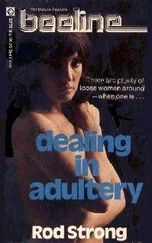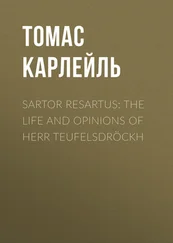Vladimir Nabokov - Strong opinions
Здесь есть возможность читать онлайн «Vladimir Nabokov - Strong opinions» весь текст электронной книги совершенно бесплатно (целиком полную версию без сокращений). В некоторых случаях можно слушать аудио, скачать через торрент в формате fb2 и присутствует краткое содержание. Город: New York, Год выпуска: 1990, Издательство: First Vintage International Edition, Жанр: Классическая проза, на английском языке. Описание произведения, (предисловие) а так же отзывы посетителей доступны на портале библиотеки ЛибКат.
- Название:Strong opinions
- Автор:
- Издательство:First Vintage International Edition
- Жанр:
- Год:1990
- Город:New York
- ISBN:нет данных
- Рейтинг книги:4 / 5. Голосов: 1
-
Избранное:Добавить в избранное
- Отзывы:
-
Ваша оценка:
- 80
- 1
- 2
- 3
- 4
- 5
Strong opinions: краткое содержание, описание и аннотация
Предлагаем к чтению аннотацию, описание, краткое содержание или предисловие (зависит от того, что написал сам автор книги «Strong opinions»). Если вы не нашли необходимую информацию о книге — напишите в комментариях, мы постараемся отыскать её.
Strong opinions — читать онлайн бесплатно полную книгу (весь текст) целиком
Ниже представлен текст книги, разбитый по страницам. Система сохранения места последней прочитанной страницы, позволяет с удобством читать онлайн бесплатно книгу «Strong opinions», без необходимости каждый раз заново искать на чём Вы остановились. Поставьте закладку, и сможете в любой момент перейти на страницу, на которой закончили чтение.
Интервал:
Закладка:
What inspires you to record and collect such disconnected impressions and quotations?
All I know is that at a very early stage of the novel's development I get this urge to garner bits of straw and fluff, and eat pebbles. Nobody will ever discover how clearly a bird visualizes, or if it visualizes at all, the future nest and the eggs in it. When I remember afterwards the force that made me jot down the correct names of things, or the inches and tints of things, even before I actually needed the information, I am inclined to assume that what I call, for want of a better term, inspiration, had been already at work, mutely pointing at this or that, having me accumulate the known materials for an unknown structure.
After the first shock of recognition — a sudden sense of «this is what I'm going to write» — the novel starts to breed by itself; the process goes on solely in the mind, not on paper; and to be aware of the stage it has reached at any given moment, I do not have to be conscious of every exact phrase.
I feel a kind of gentle development, an uncurling inside, and I know that the details are there already, that in fact 1 would see them plainly it 1 looked closer, if 1 stopped the machine and opened its inner compartment; but I prefer to wait until what is loosely called inspiration has completed the task for me. There comes a moment when I am informed from within that the entire structure is finished. All I have to do now is take it down in pencil or pen. Since this entire structure, dimly illumined in one's mind, can be compared to a painting, and since you do not have to work gradually from left to right for its proper perception, I may direct my flashlight at any part or particle of the picture when setting it down in writing. I do not begin my novel at the beginning. I do not reach chapter three before I reach chapter four, I do not go dutifully from one page to the next, in consecutive order; no, I pick out a bit here and a bit there, till I have filled all the gaps on paper. This is why I like writing my stories and novels on index cards, numbering them later when the whole set is complete. Every card is rewritten many times. About three cards make one typewritten page, and when finally I feel that the conceived picture has been copied by me as faithfully as physically possible — a few vacant lots always remain, alas then I dictate the novel to my wife who types it out in triplicate.
In what sense do you copy «the conceived picture» of a novel?
A creative writer must study carefully the works of his rivals, including the Almighty. He must possess the inborn capacity not only of recombining but of recreating the given world. In order to do this adequately, avoiding duplication of labor, the artist should know the given world. Imagination without knowledge leads no farther than the back yard of primitive art, the child's scrawl on the fence, and the crank's message in the market place. Art is never simple. To return to my lecturing days: I automatically gave low marks when a student used the dreadful phrase «sincere and simple» — «Flaubert writes with a style which is always simple and sincere» — under the impression that this was the greatest compliment payable to prose or poetry. When I struck the phrase out, which I did with such rage in my pencil that it ripped the paper, the student complained that this was what teachers had always taught him: «Art is simple, art is sincere». Someday I must trace this vulgar absurdity to its source. A schoolmarm in Ohio? A progressive ass in New York? Because, of course, art at its greatest is fantastically deceitful and complex.
In terms of modern art, critical opinion is divided about the sincerity or deceitfulness, simplicity or complexity, of contemporary abstract painting. What is your own opinion?
I do not see any essential difference between abstract and primitive art. Both are simple and sincere. Naturally, we should not generalize in these matters: it is the individual artist that counts. But it we accept tor a moment the general notion of «modern art», then we must admit that the trouble with it is that it is so commonplace, imitative, and academic. Blurs and blotches have merely replaced the mass prettiness of a hundred years ago, pictures of Italian girls, handsome beggars, romantic ruins, and so forth. But just as among those corny oils there might occur the work of a true artist with a richer play of light and shade, with some original streak of violence or tenderness, so among the corn of primitive and abstract art one may come across a flash of great talent. Only talent interests me in paintings and books. Not general ideas, but the individual contribution.
A contribution to society?
A work of art has no importance whatever to society. It is only important to the individual, and only the individual reader is important to me. I don't give a damn for the group, the community, the masses, and so forth. Although I do not care for the slogan «art for art's sake» — because unfortunately such promoters of it as, for instance, Oscar Wilde and various dainty poets, were in reality rank moralists and didacticists — there can be no question that what makes a work of fiction safe from larvae and rust is not its social importance but its art, only its art.
What do you want to accomplish or leave behind — or should this be of no concern to the writer?
Well, in this matter of accomplishment, of course, I don't have a 35year plan or program, but I have a fair inkling of my literary afterlife. I have sensed certain hints, I have felt the breeze of certain promises. No doubt there will be ups and downs, long periods of slump. With the Devil's connivance, I open a newspaper of 2063 and in some article on the books page I find: '*Nobody reads Nabokov or Fulmerford today». Awful question: Who is this unfortunate Fulmerford?
While we're on the subject of selfappraisal, what do you regard as your principal failing as a writer — apart from forgetability?
Lack of spontaneity; the nuisance of parallel thoughts, second thoughts, third thoughts; inability to express myself properly in any language unless I compose every damned sentence in my bath, in my mind, at my desk.
You're doing rather well at the moment, if we may say so. It's an illusion.
Your reply might be taken as confirmation of critical comments that you are «an incorrigible leg puller», «a mystificator», and «a literary agent provocateur». How do you view yourself?
I think my favorite fact about myself is that I have never been dismayed by a critic's bilge or bile, and have never once in my life asked or thanked a reviewer for a review. My second favorite fact — or shall I stop at one?
No, please go on.
The fact that since my youth — I was 19 when I left Russia — my political creed has remained as bleak and changeless as an old gray rock. It is classical to the point of triteness. Freedom of speech, freedom of thought, freedom of art. The social or economic structure of the ideal state is of little concern to me. My desires are modest. Portraits of the head of the government should not exceed a postage stamp in size. No torture and no executions. No music, except coming through earphones, or played in theaters.
Why no music?
I have no ear for music, a shortcoming I deplore bitterly. When I attend a concert — which happens about once in five years — I endeavor gamely to follow the sequence and relationship of sounds but cannot keep it up for more than a few minutes. Visual impressions, reflections of hands in lacquered wood, a diligent bald spot over a fiddle, these take over, and soon I am bored beyond measure by the motions of the musicians. My knowledge of music is very slight; and I have a special reason for finding my ignorance and inability so sad, so unjust: There is a wonderful singer in my family — my own son. His great gifts, the rare beauty of his bass, and the promise of a splendid career — all this affects me deeply, and I feel a fool during a technical conversation among musicians. I am perfectly aware of the many parallels between the art forms of music and those of literature, especially in matters of structure, but what can I do if ear and brain refuse to cooperate? I have found a queer substitute for music in chess — more exactly, in the composing of chess problems.
Читать дальшеИнтервал:
Закладка:
Похожие книги на «Strong opinions»
Представляем Вашему вниманию похожие книги на «Strong opinions» списком для выбора. Мы отобрали схожую по названию и смыслу литературу в надежде предоставить читателям больше вариантов отыскать новые, интересные, ещё непрочитанные произведения.
Обсуждение, отзывы о книге «Strong opinions» и просто собственные мнения читателей. Оставьте ваши комментарии, напишите, что Вы думаете о произведении, его смысле или главных героях. Укажите что конкретно понравилось, а что нет, и почему Вы так считаете.










